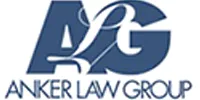- posted: Mar. 30, 2022
Deciding to file for bankruptcy is often tough, but the relief it can offer is substantial, making it an attractive option for those needing a fresh financial start. The predominant motivation for filing for most individuals is to wipe out debt. However, not all debts can be discharged through bankruptcy.
In the instance of debt elimination, a bankruptcy discharge means a debtor is no longer obligated to pay any of the debts discharged by the courts, and creditors cannot continue to try and collect on them.
Federal bankruptcy law defines the kinds of debts eligible for discharge, and they typically fall into two main categories: those almost always discharged and those rarely or never released.
Financial obligations that are usually approved for discharge include:
- Credit card debt
- Medical bills
- Personal loans
- Utility bills
In contrast, the several types of debt that are rarely forgiven without a compelling legal reason or, in some instances, never discharged as doing so would violate the U.S. bankruptcy code include:
- Debts not included in the bankruptcy petition
- Most taxes
- Student loans, unless an individual can prove undue hardship and meet all necessary requirements
- Child support or alimony, including attorneys’ fees for child custody or support
- Fines or penalties owed to government agencies
- Financial obligations for personal injury settlements/awards involving a drunk driving accident
- Criminal restitution and other court fines or penalties
- Debts created through fraudulent activity
- Financial obligations related to willful injury or wrongful death
A creditor can file with the court lobbying against the dismissal of the debt. If they are successful, the debtor will remain liable for the amounts due to the creditor.
While debts discharged by the bankruptcy courts do not become taxable income, it’s a good idea to consult a tax professional following a bankruptcy as canceled debt may reduce other tax benefits previously available.
The bankruptcy attorneys of Anker Law Group in Rapid City, South Dakota, help clients file for bankruptcy relief. Our firm has extensive experience handling personal, business, and farming bankruptcies. To schedule a free initial consultation with a member of our legal team, call 605-519-5967 or contact us online.

